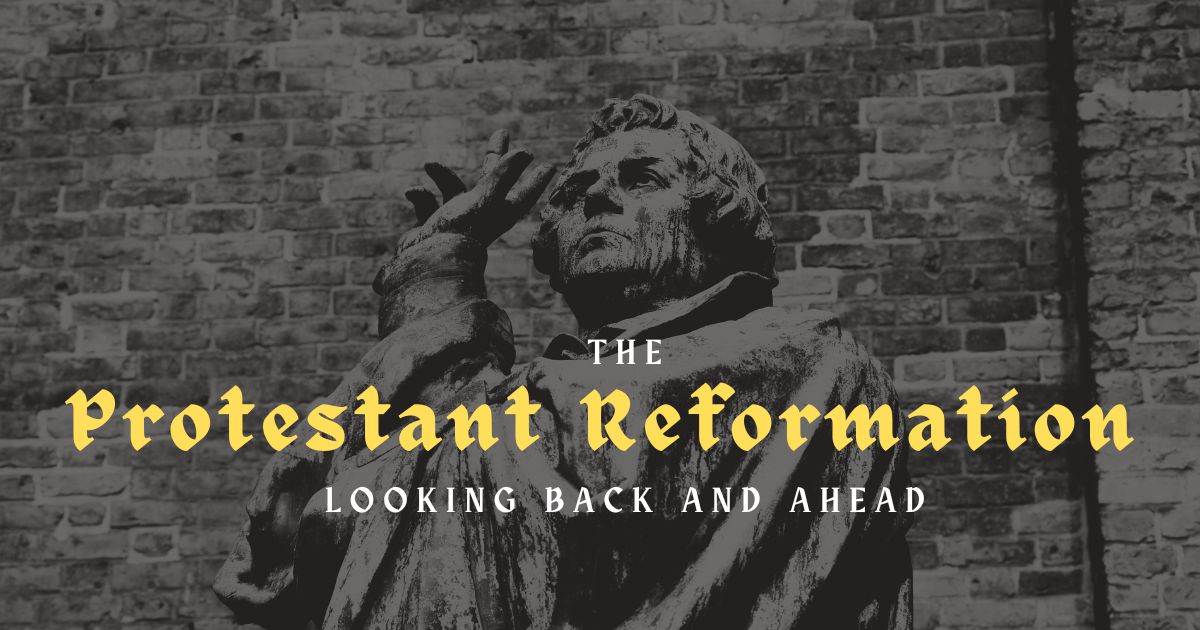Many of the beliefs that protestants hold dear today found their greatest clarification in the teaching of the reformers. The summary of the most important of these doctrines have been crystallized into what theologians call the Solas (from the Latin sola, “alone”). While there are many, five solas rise to the top as the most important.
Sola Scriptura—Scripture Alone. Sola Scriptura declares that the Bible is the sole and final authority on all matters in life, godliness, and salvation from sin. The Scriptures and not the Church or any other human institution hold the inspired revealed will of God. Declared originally during the Reformation to counter the Roman Catholic Church's heretical belief in its own inherent spiritual authority as equal to Scripture, Sola Scriptura reminds us that the Bible—the inerrant and infallible Word of God given by the inspiration of the Holy Spirit—stands completely alone as the source of specific knowledge of God, Christ, and the way of salvation.
Sola Fide—Faith Alone. Sola Fide declares that salvation from sin is through faith alone. We come to the Lord Jesus with empty hands and nothing but sin to offer. Romans 3:28 teaches that "one is justified by faith apart from works of the law." Our faith in placed in the only one who can save, Jesus Christ. Faith is expressed in the belief that we have desperate need of a Savior and that no merits of our own can contribute to our salvation from sin.
Sola Gratia—Grace Alone. Sola Gratia declares that it is God's mercy and kindness alone that leads to salvation. The sinner has no inherent goodness and is in no way somehow a little better choice for salvation than other human beings. Nothing we possess as people endears the sinner to God. His grace is the reason for and means of salvation, as Ephesians 2:8 teaches, it is "by grace you have been saved through faith. And this is not your own doing; it is the gift of God." No Christian can rightly take any credit for salvation. Both the grace of God and the faith to believe in Christ are His gift to us, given in regeneration by the Holy Spirit.
Solus Christus—Christ Alone. Solus Christus declares that there is no other way to bridge the eternal gap between unholy mankind and Holy God. Christ alone is the mediator who, based on his death and resurrection, graciously grants access to God the Father and to salvation. No human priest or self-appointed religious leader can do this work. No other has the power or authority to forgive sin. As Jesus Himself declared, "I am the way, the truth, and the life. No one comes to the Father except through me" (John 14:6). First Timothy 2:5 boldly proclaims that "there is one mediator between God and men, the man Jesus Christ." As fully God and fully human, Jesus alone can represent both parties in the exchange of the destiny of judgment to the destiny of paradise with God. And because of Christ's mediation and sacrifice, the wrath of God is satisfied and reconciliation with God is made possible.
Soli Deo Gloria—Glory to God Alone. Soli Deo Gloria declares that all life is lived to the glory of God alone and in particular, salvation in Christ is ultimately all for God's glory. Speaking of His upcoming death on the cross, Jesus prayed to the Father, "Father, the hour has come; glorify your Son that the Son may glorify you" (John 17:1). The salvation from sin freely offered by God through Christ, while it greatly benefits the sinner, ultimately finds its purpose in God receiving all glory and honor so that we join with the Psalmist who cries out, "Not to us, O LORD, not to us, but to your name give glory, for the sake of your steadfast love and your faithfulness!" (Ps 115:1). "Worthy are you, our Lord and God, to receive glory and honor and power, for you created all things, and by your will they exist and were created" (Rev 4:11).

